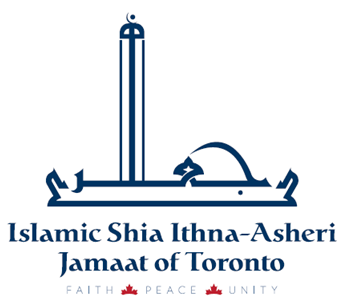By: Maulana Sayyid Muhammad Rizvi
WHAT IS ISLAM?
In the name of Allãh, the Kind, Merciful. All Praise is due to Allãh, the Lord of the Universe. May God shower His blessings upon Prophet Muhammad & his progeny.
INTRODUCTION
Islam is one of the major world religions. Every fifth person on the face of this earth is a Muslim. Muslims are found in the Middle East, in north, west and east Africa, in Asia and Eastern Europe. In modern times, Muslims are found in large numbers in Western Europe, the Americas and Australia through immigration as well as conversion. Recent statistics show that Islam is the fastest growing religion in the USA. With the vast world turning into a “global village,” such a wide-spread religion followed by over a billion people indeed deserves a careful study.
WHAT IS ISLAM?
Islam is not just a religion in the conventional sense of the word; it is a way of life—it guides it followers in every aspect of their lives.
The name “Islãm” is an Arab name. (“Islaam” is pronounced with “s” sound and not with “z” as in “Izlaam”.) It comes from the root word “as-silm” which means “peace”. “Islãm” itself means “submission to the will of God”. It means that real peace comes only after a person submits himself to the will of God.
Although Islam started fourteen centuries ago in Arabia, for Muslims it is not a new beginning—Islam, for Muslims, is the culmination of the message of God for human society. Muslims believe that God from day one of human creation sent prophets and messengers to guide the human society. Many prophets were sent to various regions of the world. Muslims are required to have faith in the prophethood of all of them. The most famous of the past prophets were: Adam, Noah, Abraham, Moses, and Jesus.
The essential message of all the prophets was the same:
¨ belief in One God;
¨ belief in the prophets of God and in their teachings;
¨ belief in the eternal life in hereafter.
MUHAMMAD, THE LAST MESSENGER
After Prophet Jesus, God sent Muhammad as the Final Prophet and Messenger of God. With his prophethood, the process of guidance reached its peak and perfection.
Prophet Muhammad was born in the city of Mecca in Arabia in the family which traced its lineage to Prophet Abraham through his son Ishmael. At the age of forty, Prophet Muhammad reached the first revelation from God through the Arch-Angel Gabriel.
He called the people of Mecca who were mostly idol-worshippers to the worship of One God, and to a life based on laws of God which would guarantee peace and harmony in inter human relationship. Majority of the people of Mecca refused to accept his message. The small number of his followers did not deter the Prophet from continuing his mission. Muhammad was fully supported in his mission by close family members, in particular his wife, Khadīja, and cousin, ‘Ali.
The leaders of idol-worshippers of Mecca, who did not want any change in the status-quo, started a campaign against Prophet Muhammad and the religion of Islam:
· first they started propaganda against Prophet Muhammad;
· then they started social and economic embargo against Muslims;
· finally they planned to assassinate the Prophet himself.
In the meanwhile, the Prophet’s message found a very receptive audience among the people of Medina, a city in northern Arabia. So after thirteen years of hard work in Mecca, the Prophet Muhammad migrated to Medina where he lived for the last eleven years of his life.
It was in Medina that the Prophet founded the first Islamic community on the principles of monotheism of the Almighty and brotherhood of the Muslims.
THE QUR’ÃN
The revelation which Prophet Muhammad received from God during almost twenty three years of his mission was compiled in a book form and is considered by all Muslims as the Holy Scripture of Islam. This revelation is known as “The Qur’ãn”.
The Qur’ãn has been preserved by the Muslims in its original form. Muslims have preserved it in writing as well in memory in each generation for the last fourteen centuries. Even those Muslims who are not familiar with the Arabic words learn how to recite the holy Book in Arabic.
BELIEF IN ONE GOD
Islam is a monotheistic religion. It teaches that there is only One God who is the origin and creator of the universe. The concept of belief in One God is known as “Tawhid”. This is the foundation stone of Islam, and is reflected in the famous creed which a Muslim child learns at a very early age. The creed says: lã ilaha il-lal Lãh — there is no god but Allãh.
“Allãh” is the Arabic name of God. Since the Qur’ãn is in Arabic, Muslims like to use the Arabic name for God. Even Christians in the Arab world use the name “Allãh” in their prayers.
By teaching that there is only One God for all humans, Islam promotes the sense of brotherhood and equality in human society—all are equally related to God in the same way. The Qur’ãn has very beautifully presented the concept of monotheism in a short chapter. It says: Say: He, Allãh, is One. Allãh is Eternal. He neither begets nor is He begotten. And there is no one equal to Him. (The Qur’ãn, chapter # 112)
PURPOSE OF LIFE
Our life on this earth has a specific purpose; it is not the result of nature’s accident, nor is it a punishment for eating the fruit of the forbidden tree. We are here according to God’s plan: to attain a blissful eternal life in the hereafter. Prophet Muhammad said, “You have not been created to perish; on the contrary, you have been created for eternal life.”
However, in order to attain the bliss and grace in the eternal life, we have to go through test and trial in this world. The test is to see how much willingly we do submit ourselves to the commands of God. Everything that we do is a test and trial for us. If we follow God’s commandment, then we succeed; otherwise, we will get the eternal life but without any bliss or grace in it.
STAUS OF HUMAN BEINGS IN ISLAM
PRIME CREATION: Human being is the prime creation of God. He says, “We have indeed honoured the children of Adam; spread them in the land and the sea, provided them with good things; and preferred them in esteem over many things that We have created.” (17:70)
BORN SINLESS: Islam teaches that every human being is born sinless; no child carries the burden of his or her ancestor’s sins. God says, “No carrier shall carry the burden of others.” (35:18) Each human being is born with a pure conscience which can absorb and accept the true message of God. It is only the social and familial influences which take a person away from God’s message.
ACCOUNTABILITY: Islam also emphasizes on the issue of responsibility and accountability of human beings—each person is responsible for his or her own actions. Although Islam teaches that God has predetermined the span of our life and the time of our death, but this does not mean that even our actions are predetermined by Him. We surely are free in our actions and are, therefore, accountable for them. God only provides guidance for us to know what is good and what is bad. He says, “We created man of a water-drop…Surely We guided them to the right way—now whether he (follows it and) be grateful or (goes astray and) be ungrateful is up to him.” (76:3)
RACE: Islam very categorically rejects racial discrimination. It promotes the feeling of brotherhood and equality among its followers. God clearly says, “O Mankind! We have created you from one male and one female, and then We made you into different races and tribes so that you may know (and easily recognize) each other.” Therefore, no one can claim any superiority over others based on racial or tribal differences. A person is to be judged by his character, not by his colour or race. God continues, “Surely the most honourable of you in God’s sight is the person who is most upright in character among you.” (49:13)
GENDER: Even gender does not count as a criterion of superiority. In Islam, women are as human as men. They are not evaluated on basis of their gender, but on basis of their faith and character. Fourteen hundred years ago, the Qur’ãn recorded God’s clear statements on this issue. Out of four verses, I will just quote one: “Whoever, be it a male or a female, does good deeds and he or she is a believer, then they will enter the Paradise.” (4:124) So there is no difference in the degree or level of woman’s humanity or honour in Islam.
The only difference there exists is concerning the role which Islam has envisioned for man and woman. This has nothing to do with superiority or inferiority. In Islam, man and woman are equal in rights; but equality is not synonymous to similarity.
Islam believes that man and woman are equal but dissimilar. Islam looks at their different roles in society not as superior or inferior but as complementary to each other.
ISLAM: THE RELIGION OF PEACE
As reflected in its name, Islam is a religion of peace. Muslims are taught to greet each other by saying “salãmun ‘alaykum — peace be upon you”. The daily prayers also end with the same sentence. In Islam, one of the names by which God is known is “As-Salãm” which means peace.
However, one must realize that peace, on a social level, is inter-twined with justice. Peace can only exists if justice is maintained in society.
Unfortunately, because of the Middle Eastern events of last fifty years, Islam has been branded by the western media as a religion of violence. In recent years, the word “Islamic” has become one of the adjectives of “terrorism”.
In this backdrop, firstly, one must realize that the events of the Middle East can be fairly and fully understood only in the light of the post-World War One history of that region, in particular the unfulfilled promises given by the British to the Arabs in order to incite them to rebel against their own Muslim rulers.
Secondly, no fair-minded person would allow himself to blame the religion of Islam for the wrong-doings of those who call themselves as Muslims. It is just like saying that the Catholic Church promotes violence and terrorism because of the Irish Republican Army’s activities!
* * * These were the teachings of Islam, the religion sent by God to Prophet Muhammad. It has been preserved in its originality by the leaders who came from the family of the Prophet. On this note, I would like to end with one of the last important messages of the Prophet Muhammad (peace be upon him) where he says: “I am leaving behind two important things among you: one is the Book of Allãh (the Qur’ãn) and the other is my family, the Ahlul Bayt. As long as you hold on fast to both of them, you will not go astray.”* * *



